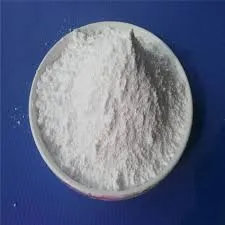Cooling Water Treatment Chemicals Importance and Applications
In industrial settings, cooling systems are essential for maintaining optimal operating temperatures and ensuring processes run smoothly. However, these systems can encounter a variety of challenges, including scaling, corrosion, and biological growth. To mitigate these issues, cooling water treatment chemicals play a crucial role in the efficiency and longevity of cooling systems. This article explores the importance, types, and applications of cooling water treatment chemicals.
Importance of Cooling Water Treatment
The primary function of cooling water treatment is to protect equipment and optimize the performance of cooling systems. Without proper treatment, cooling water can lead to the formation of scale, which is a buildup of mineral deposits on heat exchange surfaces. This scaling can significantly reduce heat transfer efficiency, leading to increased energy consumption and higher operational costs. In addition, untreated water can cause corrosion of metals, leading to leaks and equipment failure.
Biological fouling is another significant concern in cooling systems. Algae, bacteria, and other microorganisms thrive in warm water environments, leading to biofilm formation. This not only obstructs flow but can also produce harmful byproducts that impact the quality of the cooling water. Effective treatment chemicals are essential in preventing these issues, ensuring that cooling systems operate efficiently and reliably.
Types of Cooling Water Treatment Chemicals
Cooling water treatment chemicals can be categorized into several types, each serving a specific purpose
1. Corrosion Inhibitors These chemicals protect metallic surfaces from corrosion caused by the presence of oxygen, acids, and other corrosive elements in the water. Common corrosion inhibitors include phosphates, nitrites, and silicates.
2. Scale Inhibitors Scale inhibitors prevent the formation and deposition of scale on heat exchangers and other surfaces. They can be organic or inorganic and include polyacrylic acids, phosphonates, and crystal modifiers, which alter the precipitation process of minerals like calcium carbonate.
3. Biocides These are essential for controlling biological growth within cooling water systems. Biocides can be oxidizing (like chlorine and bromine) or non-oxidizing (like isothiazolinones and quaternary ammonium compounds), each effective against various types of microorganisms. Regular use of biocides ensures that cooling systems remain free from harmful fouling.
cooling water treatment chemicals

4. pH Adjusters Maintaining the correct pH level in cooling water is vital for the effective functioning of other treatment chemicals. pH adjusters, such as sodium hydroxide or sulfuric acid, help to maintain an optimal pH, reducing the risk of corrosion and scaling.
5. Flocculants These chemicals aid in the removal of suspended solids and particulates from cooling water. By aggregating small particles into larger ones, flocculants enhance the efficiency of filtration systems and improve water clarity.
Applications of Cooling Water Treatment Chemicals
Cooling water treatment chemicals are utilized across various industries, including
- Power Generation In power plants, maintaining efficient cooling is crucial. Treated water ensures that turbines and condensers operate optimally, leading to higher efficiency and lower emissions.
- Chemical Manufacturing Chemical plants often require precise temperature control. Proper cooling water treatment protects reactors and heat exchangers from fouling and damage, enabling continuous operation.
- HVAC Systems In commercial and residential buildings, treated cooling water in HVAC systems enhances comfort and energy efficiency while prolonging the life of the equipment.
- Metal Processing Industries that involve metal processing face significant challenges from corrosion and scale. Using the right treatment chemicals can save costs on maintenance and downtime.
Conclusion
Cooling water treatment chemicals are vital for the effective and efficient operation of cooling systems across various industries. By preventing scaling, corrosion, and biological growth, these chemicals not only enhance operational efficiency but also reduce maintenance costs and extend the lifespan of equipment. As industries continue to seek sustainable and cost-effective solutions, the role of cooling water treatment chemicals will only grow in significance, ensuring that systems operate optimally in an environmentally responsible manner.

